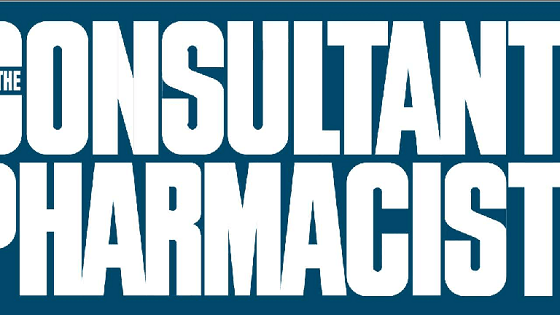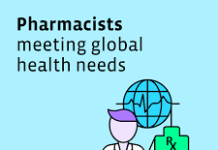
It is quite disconcerting that one of the major battles that the average Nigerian patient has to frequently grapple with – apart from the infrastructural deficits and decays that afflict the nation’s healthcare system itself – is the perennial ambience of antagonism that prevails among the healthcare professionals. This toxic atmosphere, triggered and sustained by unhealthy rivalry, escalated again recently with the eventual approval of the pharmacy consultant cadre by the Federal Government, after years of controversy over the matter.
Incidentally, the approval came nine months after the National Council on Establishment (NCE) had given a prior approval at its 41st Meeting held 4 to 8 November, 2019 in Asaba, Delta State. Referring to the NCE’s decision in a circular dated 11 September 2020, Dr Folasade Yemi-Esan, head of the Civil Service of the Federation, asserted that the approved Scheme of Service for the pharmacy consultant cadre which was to take immediate effect, would be reflected in the subsequent edition of the Federal Government’s Scheme of Service.
However, in a swift rejoinder, the Nigerian Medical Association (NMA) said it rejected the approved scheme of service, describing it as an “unwarranted assault on the integrity of our noble profession.” As should be expected, both the Pharmaceutical Society of Nigeria (PSN) and the Joint Health Sector Unions (JOHESU) have equally fired back at the NMA, with JOHESU describing NMA’s position on the matter as “incomprehensible, illogical and ridiculous.”
While the rancorous interactions between medics and other professionals in the health sector has become almost a permanent feature of the nation’s healthcare landscape, it must be emphasised that this particular hullaballoo is an unwarranted distraction at this crucial time that the nation is still struggling to extricate itself from the clutches of the COVID-19 pandemic. In the first place, the pharmacy consultant cadre is neither a new phenomenon nor one peculiar to Nigeria. As a matter fact, it is a reflection of global best practice.
Several other countries of the world, in recognition of the expanding training and changing roles of pharmacists and other healthcare professionals, have long recognised that the consultancy cadre cannot be the exclusive “birth right” of physicians. Indeed, in the general sense, the term “consultant” usually refers to a person who has an occupation in which they are consulted for their expertise, advice or help. In healthcare, it often refers to the most senior clinician, pharmacist, nurse or allied health professional in a specialty. More importantly, attainment of such a level by any professional can only be determined by government approved licensing institutions and agencies. It is thus preposterous for professionals in any field of healthcare to assume they have the prerogative to decide whether or not professionals in other fields become consultants.
The case of consultant pharmacists is particularly apposite here. The consultant title is not just a gratuitous label, nor is it one obtained through “the back door” as the NMA has consistently claimed; rather, it is one that is obtained after several years of rigorous training and acquisition of requisite knowledge, skills and expertise in not just the core areas of Pharmacy but also in the pathology, pathophysiology, progression, and complications of disease states. This is especially made possible through the Doctor of Pharmacy programme and the years of specialised postgraduate training offered by such prestigious educational and certifying institutes as the West African Postgraduate College of Pharmacists (WAPCP).
The American Society of Consultant Pharmacists describes a consultant pharmacist as a pharmacist who is paid to provide expert advice on the use of medication by individuals or within institutions, or on the provision of pharmacy services to the institution. They work with physicians and other members of the healthcare team to ensure that patients’ medications are appropriate, effective, safe as possible and used correctly. They also identify, resolve, and prevent medication-related problems that may interfere with the goals of therapy.
The United Kingdom’s National Health Service (NHS) also shares the same perspective – describing a consultant pharmacist as a pharmacist who has advanced roles in patient care, research and education in a specific medical speciality or expert area of practice. Considering these vital roles, it is unsurprising that in each of these countries and many others, the demand for consultant pharmacists is on the rise. This is because both policy makers and health professionals in these climes recognise that encouraging healthcare providers to advance their knowledge and expertise to the highest level will significantly help to improve patient care. Even more noteworthy is that there are no documented cases of such inter-professional progressions causing disaffection among the healthcare professionals or creating confusion among patients. Why the Nigerian scenario has to be different should baffle any rational mind.
We also wish to state that the claim by the NMA that approval of the consultancy cadre for other health workers has the potential to polarise healthcare workers and affect patient management on account of distorting the hierarchical order of healthcare delivery is, at best, fictitious; and, at worst, egocentric. The leadership of physicians in any healthcare delivery team has never been in doubt, whether to patients or other members of the team. Patients do not visit a hospital to see a pharmacist or nurse – they go to see a doctor. But doctors do not know it all; and more specifically, they are not the best experts in medication therapy. This is the exclusive preserve of consultant pharmacists.
With Nigeria occupying one of the lowest places in the World Health Organisation’s ranking of health systems and presently battling a pandemic, what the citizens urgently need is qualitative healthcare delivery, not petty bickering and supremacist postulations. Let there be consultant pharmacists. Their advisory roles will not only help to deliver better care to patients but also help to prevent majority of prescribing errors and iatrogenic diseases that have become commonplace in this clime.











